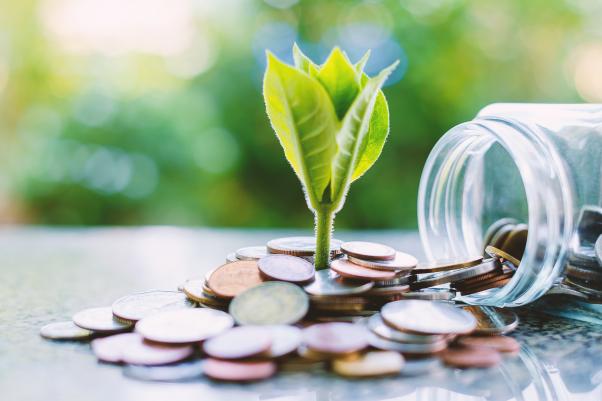What is sustainable finance and how it is changing the world

- Investors no longer face a choice between profit and saving the planet.
- Sustainable finance is prioritizing businesses that help the environment.
- But it also focuses on inclusion and ethical business standards.
The drive to sustainability is transforming the way we live. But what is the impact on the way our savings and pensions are invested? Welcome to the world of sustainable finance.
Environmental, social and governance (ESG) considerations have come to dominate many investment decisions in recent years. Put simply, this means investing your money where it will make the world a better place.
What is sustainable finance
Sustainable investing covers a range of activities, from putting cash into green energy projects to investing in companies that demonstrate social values such as social inclusion or good governance by having, for example, more women on their boards.
Sustainable finance has a key role to play in the world’s transition to net zero by channelling private money into carbon-neutral projects, says the European Union, whose Green Deal Investment Plan aims to raise $1.14 trillion to help pay the cost of making Europe net zero climate change emissions by 2050.
To ensure that sustainable investments deliver on their promises, global accounting body the International Financial Reporting Standards Foundation has just set up the International Sustainability Standards Board to come up with new rules to validate sustainability claims.
Sustainable finance provides better returns
As well as helping the planet and making society fairer and more inclusive, evidence is mounting that sustainable businesses actually offer higher returns for investors.

A study conducted for asset manager Fidelity tracked the performance of a range of ESG investments worldwide between 1970 and 2014 and found that half of them outperformed the market. Only 11% showed negative performance.
Analysis by BlackRock – the world’s biggest asset management company – found that during the height of the COVID-19 pandemic in 2020, more than eight out of 10 sustainable investment funds performed better than share portfolios not based on ESG criteria.

As well as paying higher dividends to shareholders, companies with high ESG ratings have also enjoyed stronger increases in their share price in the past five years, according to research by financial website Morningstar.
This matters because most stock market investments are made by financial institutions such as pension funds. In the United States, 80% of listed equity in leading companies is held by organizations that are looking after other people’s money.
While individuals may choose to earn a lower rate of return to save the planet, institutional investors and pension fund trustees don’t have that luxury. They must abide by what is known as a fiduciary duty to act in the best financial interest of investors.
But rising returns on sustainable assets mean trustees no longer have to sacrifice sustainability for profit. The World Economic Forum’s Transformational Investment report cites the example of New Zealand’s state pension fund, the trustees of which argued that climate change posed a risk to their ability to fund pensions and switched to a sustainable finance strategy. The fund has outperformed comparable investments by 1.24% a year since its inception in 2003 – a total difference of $7.24 billion (NZD10.65 billion).
But why do ESG-friendly investments do better than conventional investments?
Outperformance explained
One factor is changing customer attitudes. A study in the US found that two-thirds of consumers of all ages prefer to buy from companies that share their values. Among millennials – people aged between 18 and 34 – that figure rises to 83%.
Consumers are four to six times more likely to buy from a brand with a corporate purpose they endorse, according to a global survey. But if a company does something they disagree with, three-quarters said they stopped buying from that brand and encouraged others to do the same.
Carbon-intensive industries such as coal, oil and gas are also finding it harder and more expensive to raise capital as leading lenders refuse to do business with them.
In contrast, sustainable companies are more likely to win contracts, save costs by using fewer resources, have less regulation, retain the best people and avoid losing money on old carbon-intensive processes, according to research by McKinsey.
Global companies took in a record $859 billion in sustainable investments in 2021, Reuters reported, including $481.8 billion in green bonds that raised money for specific environmental projects.
And the level of sustainable finance is only set to grow. The total value of ESG investments is on track to exceed $53 trillion by 2025, accounting for more than a third of all global investments, according to analysis by Bloomberg.












